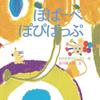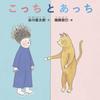Mindfulness is gaining attention in a wide range of fields, from business to dieting.
Mindfulness for children, which is currently attracting attention, is said to help children control their attention and thoughts, deepen their awareness of bodily sensations, and aim to promote psychological health and improve performance.
In educationally advanced countries such as the UK, the US, and the Netherlands, mindfulness education programs for children have been developed and adopted by many schools. One such program, ".b," developed by the UK educational organization MiSP (Mindfulness in Schools Project), is a school program used by thousands of children around the world. It has been shown to contribute to children's physical and mental health, including reducing depression and improving well-being.
This picture book was written and supervised by Michiko Ashiya, who introduced the UK program to Japan and conducts research at Shiga University. She designed the activities and created the story for "Magical Mimicry," a mindfulness picture book originally developed in Japan.
The themes of this book are "irritability," "anger/tantrums," and "excessive excitement/restlessness." This story follows a bear, cat, and dog as they change their emotions through "magical impersonation." A parent-friendly column offers tips on how to talk to them and step-by-step gameplay.
<Voice from a monitor>
My daughters enjoyed the book, saying, "It's so fun! It's easy to do!" and "It's so refreshing!" They especially liked the "hug" page, which made them feel kind. I also started to find annoying and unpleasant behaviors in my children more endearing, and I think this has been influenced by mindfulness. I want my child and I to impersonate each other and learn to better manage our own emotions. (Parent of a 7- and 9-year-old)
My child is hooked on impersonating animals! Not only that, but he even enjoys imitating the characters' angry and crying scenes. I thought this content was just right for this time, when various emotions are emerging and difficult to control. (Parent of a 2-year-old)
This book provided an opportunity to talk about feelings, which we don't usually have. While reading the book, I was able to calmly listen to my child's thoughts about what to do when they're happy or frustrated. My son is in the early grades of elementary school, but he often cries or gets angry, perhaps because he's not good at expressing his feelings. I hope this picture book will encourage him to think about how to relieve his frustrations on his own. (Parent of a 4-year-old and an 8-year-old)
It was an eye-opener to see that there are ways to think like that. Parents often try to control their children, but I think it will be useful for children when they grow up if they can control their own emotions. My son loves the "Angry Train," so I plan to keep telling him "Angry Bye-Bye." (Parent of a 3-year-old)






























